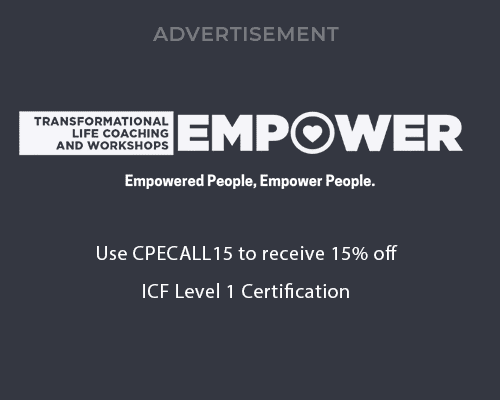Extending Our Range of Coaching Gifts with the “Spectrum of Coaching Skills”
Coaches have different personalities and styles, meaning they bring a variety of approaches and “gifts” to their coaching work. All of us find certain coaching skills come more naturally to us than others. That’s fine, except when we allow our “natural” range of gifts to limit the ways in which we can work with clients.
Good coaching is said to be based on cultivation of a particularly non-directive style of interaction. Rooted in high-level listening, observing and questioning skills, non-directiveness helps facilitate client thinking as well as the ability to dig deep to tap into their own special “wisdom” in relation to their concerns. Non-directiveness is at the core of transformative coaching; only the client can find the key to opening doors through which transformation comes in their particular case.
Many coaches struggle to achieve such a non-directive style of interaction. Does that mean they’re inevitably going to be bad coaches? Not necessarily. And does having a naturally non-directive style of coaching mean someone will inevitably be a good coach? Again, not necessarily.
According to Myles Downey, coaching skills exist on a spectrum. At one end are the non-directive skills (such as listening to understand, reflecting and summarizing), while at the other are the more directive skills (such as instructing, giving advice and offering guidance). It’s important to realize that all the skills on the spectrum are necessary at one time or another in coaching scenarios.
By exploring the “Spectrum of Coaching Skills,” we can learn to understand non-judgmentally how a range of coaching skills relate to each other. We can also identify where our own natural gifts are placed in terms of less or more directive approaches with our clients. From this understanding, we can design Continuing Professional Development strategies that will increase our repertoire of possible approaches to client need in the moment by focusing in on skills we need to strengthen, as well as flexibility in using the skills we have acquired.
Why Does It Matter?
Coaches need to be aware of when they’re in directive or non-directive mode, as well as which skills they tend to use by default without due consideration. If we’re most likely to leap into instructing and “telling,” we need to be aware that unless it’s absolutely necessary to instruct or tell, all we’re doing is depriving the client of a precious learning opportunity through self-exploration in their own way and own time.
Equally, if we’re incapable of calling on the more directive skills, we’ll find ourselves unable to challenge the client when it’s called for. We may deep down be a people-pleaser who finds potential for conflict or disagreement too difficult to contemplate. Or perhaps we over-empathize with our client, leading to collusion in supporting strategies that will ultimately be damaging.
We may need to cultivate the skills necessary for sitting tight while long-suppressed client anger or grief regarding some issue is expressed. Once the emotion is acknowledged and compassionately engaged, we may need to challenge the client to open up areas of possibility where previously there was only gloom and despair. We may need to switch in a split second from non-directive listening and empathizing to the more directive giving of feedback, key information or even instruction.
Once we understand our default mode, we can work to expand our repertoire of skills. By reflecting on our performance regularly, we can check how we’re increasing our flexibility and range of approaches, how we’re fulfilling client need in more creative, transformational ways.
Final Note
Our particular natural gifts as coaches are precious, whether they’re directive or non-directive. Yet they only come into focus as incisive instruments if we place them in a wider perspective of what is necessary and possible in coaching. The “Spectrum of Coaching Skills” can take us a long way in this endeavor by becoming our diagnostic tool, helping us to develop and stretch our abilities as coaches even farther.




Very helpful, thank you.
Glad the article was of help, and thanks for the comment!
thank you for the article it was very helpful for my level 3 Coaching and Mentoring assignment